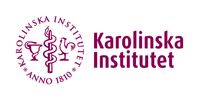First months decisive for immune system development
Many diseases caused by a dysregulated immune system, such as allergies, asthma and autoimmunity, can be traced back to events in the first few months after birth. To date, the mechanisms behind the development of the immune system have not been fully understood. Now, researchers at Karolinska Institutet show a connection between breast milk, beneficial gut bacteria and the development of the immune system. The study is published in Cell.

“A possible application of our results is a preventative method for reducing the risk of allergies, asthma and autoimmune disease later in life by helping the immune system to establish its regulatory mechanisms,” says the paper’s last author Petter Brodin, paediatrician and researcher at the Department of Women’s and Children’s Health, Karolinska Institutet. “We also believe that certain mechanisms that the study identifies can eventually lead to other types of treatment for such diseases, not just a prophylactic.”
The incidence of autoimmune diseases such as asthma, type 1 diabetes and Crohn’s disease is increasing in children and adolescents in parts of the world. These diseases are debilitating, but not as common in low-income countries as they are in Europe and the USA.
It has long been known that the risk of developing these diseases is largely determined by early life events; for instance, there is a correlation between the early use of antibiotics and a higher risk of asthma. It is also known that breastfeeding protects against most of these disorders.
There is a link between specific, protective bacteria on the skin and in the airways and gut and a lower risk of immunological diseases. However, there is still much to learn about how these bacteria form the immune system.
Researchers at Karolinska Institutet, Evolve Biosystems, Inc, the University of California Davis, University of Nebraska, Lincoln, and University of Nevada, Reno studied how the neonatal immune system adapts to and is shaped by the many bacteria, viruses, nutrients and other environmental factors to which the baby is exposed during the first few months of life.
Earlier research has shown that bifidobacteria are common in breastfed babies in countries with a low incidence of autoimmune diseases.
Breast milk is rich in HMOs (Human milk oligosaccharides), which babies are unable to metabolise on their own. The production of these complex sugars are instead associated with the evolutionary advantage of nourishing specific gut bacteria that play an important part in their immune system. Bifidobacteria are one such bacterial class.
“We found that babies whose intestinal flora can break down HMOs have less inflammation in the blood and gut,” says professor Brodin. “This is probably because of the uniquely good ability of the bifidobacteria to break down HMOs, to expand in nursing babies and to have a beneficial effect on the developing immune system early in life.”
Babies who were breastfed and received additional bifidobacteria had higher intestinal levels of the molecules ILA and Galectin-1. ILA (indole-3-lactic acid) is needed to convert HMO molecules into nutrition; Galectin-1 is central to the activation of the immune response to threats and attacks.
According to the researchers, Galectin-1 is a newly discovered and critical mechanism for preserving bacteria with beneficial, anti-inflammatory properties in the intestinal flora.
The results are based on 208 breastfed babies born at Karolinska University Hospital between 2014 and 2019. The researchers also used novel methods to analyse the immune system even from small blood samples. Additionally, a second cohort developed by the University of California in which infants were exclusively breastfed and half were fed B. infantis supplement were analyzed for enteric inflammation.
One limitation of the study is that the researchers were unable to study the immune system direct in the gut and had to resort to blood samples. Not all aspects of the gut immune system can be seen in the blood, but it is not ethically defensible to take intestinal biopsies from healthy neonates.
The researchers now hope to follow the participant babies for a longer time to see which ones develop atopic eczema, asthma and allergies.
“We’re planning a new experiment using bacterial substitution to see if we can help all babies have a healthier immunological start in life,” says professor Brodin. “We’re also working with other researchers to compare the development of the immune system in Swedish babies with babies who grow up in rural sub-Saharan Africa, where the incidence of allergies is much lower.”
The study was financed by the European Research Council, the Knut and Alice Wallenberg Foundation, Karolinska Institutet and Swedish Research Council.
Petter Brodin, Axel Olin, Jaromir Mikes and Tadepally Lakshmikanth are the founders of Cytodelics AB, Sweden. Petter Brodin is advisor to Scailyte AG, Switzerland. Ryan D. Mitchell, Stephanie Chew, Johann Prambs, Heather K. Brown, Steven A. Frese and Bethany M. Henrick are employed by Evolve BioSystems. Jennifer T. Smilowitz has received a grant for the IMPRINT experiment and Amy M. Ehrlich received funding for assisting with the writing of the manuscript. Bruce J. German is co-founder of Evolve BioSystems. Steven A. Frese are Bethany M. Henrick are affiliated with the Department of Food Science and Technology, University of Nebraska-Lincoln, USA.
Publication: “Bifidobacteria-mediated immune system imprinting early in life”. Bethany M. Henrick, Lucie Rodriguez, Tadepally Lakshmikanth, Christian Pou, Ewa Henckel, Aron Arzoomand, Axel Olin, Jun Wang, Jaromir Mikes, Ziyang Tan, Yang Chen, Amy M. Ehrlich, Anna Karin Bernhardsson, Constantin Habimana Mugabo, Ylva Ambrosiani, Anna Gustafsson, Stephanie Chew, Heather K. Brown, Johann Prambs, Kajsa Bohlin, Ryan D. Mitchell, Mark A. Underwood, T. Smilowitz, Bruce J. German, Steven A. Frese, Petter Brodin. Cell, 17 June 2021, doi:10.1016/j.cell.2021.05.030.
Contacts
For more information, please contact:
Petter Brodin, professor and paediatrician
Science for Life Lab, Department of Women’s and Children’s Health, Karolinska Institutet
Mail: petter.brodin@ki.se
Phone: +46 737 12 12 91
Images


Karolinska Institutet (https://ki.se/en) is one of the world’s leading medical universities. Our vision is to advance knowledge about life and strive towards better health for all. Karolinska Institutet accounts for the single largest share of all academic medical research conducted in Sweden and offers the country’s broadest range of education in medicine and health sciences. The Nobel Assembly at Karolinska Institutet selects the Nobel laureates in Physiology or Medicine.
Subscribe to releases from Karolinska Institutet - English
Subscribe to all the latest releases from Karolinska Institutet - English by registering your e-mail address below. You can unsubscribe at any time.
Latest releases from Karolinska Institutet - English
New method reveals how the brain and inner ear are formed3.4.2025 20:00:00 CEST | Pressmeddelande
Researchers at Karolinska Institutet have developed a method that shows how the nervous system and sensory organs are formed in an embryo. By labelling stem cells with a genetic ‘barcode’, they have been able to follow the cells’ developmental journey and discover how the inner ear is formed in mice. The discovery, published in Science, could provide important insights for future treatment of hearing loss.
Fluoride in drinking water is associated with impaired childhood cognition7.3.2025 15:30:00 CET | Pressmeddelande
Elevated concentrations of fluoride can occur in well water, and in some countries, it is added to drinking water to counteract caries in the population. A study from Karolinska Institutet in Sweden now supports a few previous studies indicating that exposure to fluoride during the fetal stage or early childhood may impair cognition in children. The study is published in the journal Environmental Health Perspectives.
Children with ARFID face increased risk of disease17.2.2025 17:00:00 CET | Pressmeddelande
Children with avoidant restrictive food intake disorder (ARFID) have an elevated risk of developing psychiatric and physical conditions, a new study from Karolinska Institutet published in JAMA Pediatrics reports. The study highlights the importance of early identification to improve care of these children.
Preterm babies receive insufficient pain management27.1.2025 15:29:17 CET | Pressmeddelande
A large proportion of babies born very early need intensive care, which can be painful. But the healthcare system fails to provide pain relief to the full extent. This is shown by the largest survey to date of pain in neonatal care, now published in the journal Pain.
New study paves way for immunotherapies tailored for childhood cancers20.1.2025 17:00:00 CET | Pressmeddelande
Researchers at Karolinska Institutet and the Astrid Lindgren Children’s Hospital in Sweden have determined how children’s immune systems react to different kinds of cancer depending on their age. The study, which is published in the journal Cell, reveals significant differences between the immune response of children and adults, and has the potential to lead to new tailored treatments for children with cancer.
In our pressroom you can read all our latest releases, find our press contacts, images, documents and other relevant information about us.
Visit our pressroom